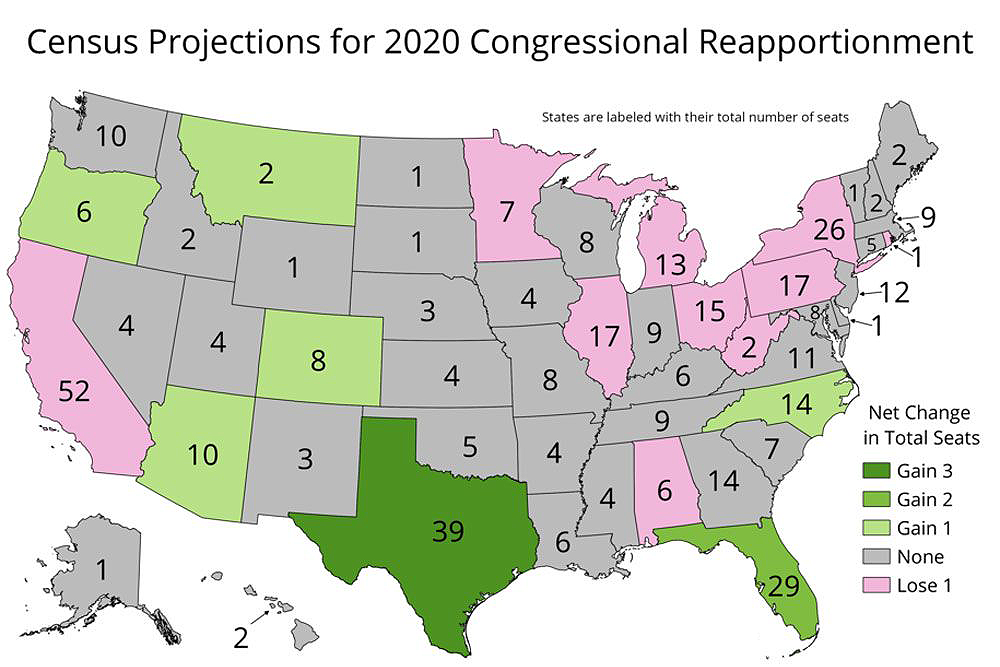Kerby Anderson
Now that the state legislatures are back in session, one of the more significant functions this year will be reapportionment. After the decennial census is completed, the states must reapportion the congressional districts. This is necessary for two reasons. First, the populations within states change. Second, the population of states varies because of migration from one state to another.
Reapportionment will affect two issues. The allocation of the 435 seats in the House of Representatives is done by population within a state. Many states will lose one or more seats, while others will gain one or more seats. This will also impact the Electoral College. The number of electors is based on the number of members of Congress.
According to an unofficial Census Bureau estimate, many of the blue states will lose members of the House of Representatives. For example, New York could lose one or two congressional seats, depending on which estimate is used. It would lose one seat if the April 1 population estimate is used. It could lose two seats if the July 1 estimate is used. Other states that will lose congressional representatives are California, Illinois, Michigan, Minnesota, Ohio, Pennsylvania, Rhode Island, and West Virginia.
Before I list the states that will pick up a congressional seat, we should mention that this is the first time in its history that California will lose a seat. Also consider that New York was the most populous state in the union until 1964. It is now fourth and losing population nearly every day.
The biggest winner in all of this is Texas that will gain three additional seats. Florida will gain two. Other states to gain a seat are Arizona, Colorado, North Carolina, and Oregon. And a large number of the state legislatures doing reapportionment are controlled by Republicans, so I predict that more Republicans will be serving in Congress in the future.
 Listen Online
Listen Online Watch Online
Watch Online Find a Station in Your Area
Find a Station in Your Area










 Listen Now
Listen Now Watch Online
Watch Online
